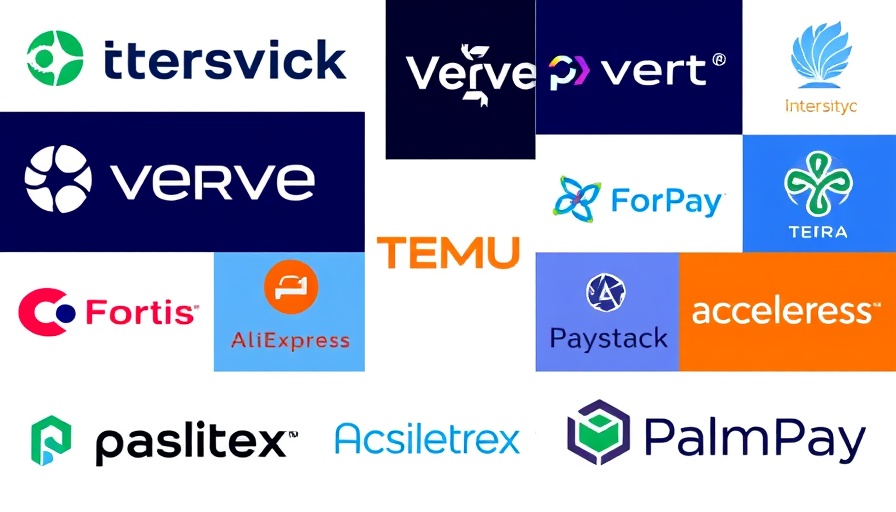
Verve Connects African Shoppers with Global Retailers
In an era where digital payments are reshaping commerce, Verve is taking significant steps to enhance consumer experience for its 75 million cardholders. The recent partnership with international brands like Temu and AliExpress signifies a pivotal moment for African consumers, who can now enjoy seamless access to global marketplaces. Gone are the days of payment frustrations at checkout; Verve is bridging the gap between local users and international online shopping.
Supporting Local Fintech Innovation
Verve is not just expanding its global reach; it's also investing heavily in local fintech ecosystems. By collaborating with companies like PalmPay and FortisPay, Verve is driving the adoption of secure, multi-channel payments that benefit everyday transactions, whether in-store or online. This initiative not only empowers the local fintech landscape but also enhances the shopping experience for users, fostering financial inclusivity across the region.
Benefits of Contactless Payments in Africa
The introduction of Verve’s contactless payment options greatly simplifies transactions. With just a tap, users can complete their purchases faster than ever. This technology not only expedites the payment process but also improves overall security. In a continent of diverse payment needs, such innovations are crucial for fostering a tech-savvy consumer base ready for the future.
A Bright Future for Verve Cardholders
As Verve solidifies its presence across 13 African countries, users can expect a more interconnected financial landscape. The company’s ambitious partnerships with tech giants pave the way for innovative solutions and quicker transactions, positioning Verve as a leader in Africa’s fintech revolution. For consumers and businesses alike, the message is clear: the future of payments is here, and it’s powered by Verve.
As the digital payment landscape continues to evolve across Africa, it’s essential for entrepreneurs, investors, and tech enthusiasts to engage with the latest developments in this sector. Embracing innovative solutions like Verve can enhance transaction efficiency and open doors to new opportunities. If you haven't yet explored what Verve has to offer, now is the perfect time to join this digital payment revolution!
 Add Row
Add Row  Add
Add 


Write A Comment